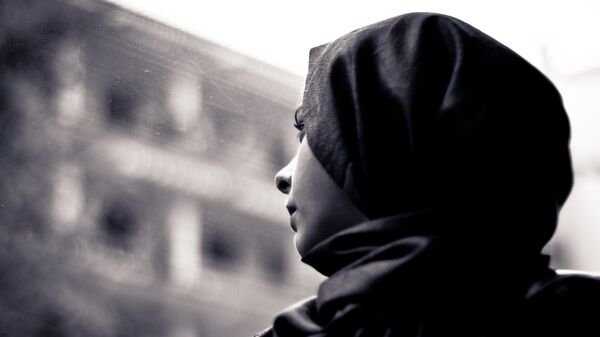The Swedish Discrimination Ombudsman (DO) has weighed in on the debate involving the acceptance of religious headdresses in public places.
In ruling that the Skurup municipality's ban on "the headscarf, burqa, niqab, and other clothing intended to hide students and staff" is incompatible with the Discrimination act, the ombudsman confirmed that the Islamic dress code is thus protected under the law.
"When the inspection is now completed, the DO makes the assessment that even though the policy, according to its wording, affects all clothing that hides students and staff in the municipality's preschools and primary schools, the purpose is precisely to ban religious clothing. This means that the application of the policy in relation to people bearing such garments will be related to their religion or beliefs", the ombudsman's office said in a press release.
Deputy discrimination ombudsman Martin Mörk emphasised that "with the exception of situations where such clothing affects a student's or employee's objective conditions to carry out an educational element or a task the ban constitutes direct discrimination related to religion and other beliefs".
In late 2019, the liberal-conservative Moderate Party, the national-conservative Sweden Democrats, and the local Skurup Party teamed together to pass a ban on Islamic headwear in the town of Skurup in Skåne County and the surrounding municipality's schools and preschools. The ban involves headscarves, burqas, niqabs, and other garments that have the purpose of concealing the face and is valid for students and staff alike.
Earlier in 2019, Moderate-governed Staffanstorp Municipality in the very same Skåne County decided to introduce "zero tolerance" for Islamic head garments for young children as part of its integration plan. The ban was designed to ensure that equality and Swedish values apply.
Both of these cases sparked hot debates in the media and stern condemnation from liberal politicians, according to whom these constitute negative bias, oppression, and encroachment upon freedom of religion and women's rights. Their opponents countered that secular traditions should be maintained, cited the French ban as an example, and underscored that it is Islamic headwear that is deeply oppressive of women and doesn't belong in feminist Sweden. Some argued that allowing religious headdresses is a slippery slope.
"If you accept that women have to cover their faces, what are you going to accept tomorrow? Do you also intend to accept polygamy, child marriage et cetera?", Sweden Democrat Lars Nyström wondered during the debate.
The number of Muslims in Sweden has soared in recent decades, from several hundred in the 1950s to over 800,000 in a country of over 10 million today. The conflict between the Islamic view of society and Sweden's feminist philosophy has raised issues previously unknown to the largely homogeneous and predominantly Lutheran nation. Among other things, some Nordic Muslims may find it hard to agree on issues such as women's rights and the acceptance of sexual minorities, which are seen as staples of Nordic society.


